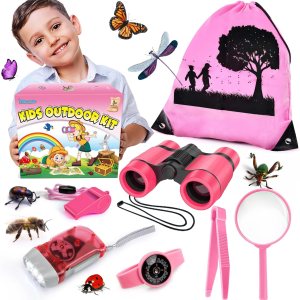Talking about difficult subjects with your child can feel overwhelming and delicate. As parents and caregivers, we want to protect their innocence while also preparing them to understand the world around them. Whether it’s discussing loss, social challenges, or complex emotions, approaching these conversations with gentleness and care is key. In this article, we’ll explore thoughtful strategies to help you navigate tough topics in a way that feels safe, compassionate, and supportive for both you and your child.
Table of Contents
- Choosing the Right Moment and Environment for Difficult Conversations
- Using Age-Appropriate Language to Foster Understanding
- Listening Actively and Validating Your Child’s Feelings
- Offering Reassurance and Encouraging Open Dialogue
- The Conclusion
Choosing the Right Moment and Environment for Difficult Conversations
Finding the perfect moment to discuss sensitive subjects with your child can profoundly influence how the conversation unfolds. It’s essential to choose a time when both you and your child are calm and free from distractions. This might be after a fun activity or during a quiet walk, where the relaxed atmosphere naturally lowers barriers. Avoid moments of stress or fatigue, such as right before bedtime or during a hectic morning, as emotions can easily run high and lead to misunderstandings.
The environment should feel safe and supportive, encouraging openness without pressure. Consider settings that promote a sense of comfort and security:
- A cozy corner of your home, where your child feels most at ease.
- During a shared activity, like cooking or drawing, to ease tension.
- Outside in nature, which can calm nerves and inspire honesty.
Remember, your presence and genuine attention create the foundation for trust. This thoughtful preparation signals to your child that the conversation is important and that you’re there to support, not judge.
Using Age-Appropriate Language to Foster Understanding
Children process information differently at various stages of their development, so it’s crucial to tailor your words to their age and comprehension level. Using simple, clear terms without overwhelming details allows them to grasp challenging concepts without fear or confusion. For younger kids, breaking down complex topics into relatable stories or analogies can make the conversation feel less intimidating and more engaging. Remember, the goal is to build trust and create a safe space where your child feels comfortable asking questions and expressing their feelings.
Consider these practical strategies when choosing your language:
- Use familiar words: Opt for vocabulary your child uses daily, avoiding jargon or abstract terms that may confuse them.
- Focus on feelings: Highlight emotions involved rather than just facts to help your child connect on an empathetic level.
- Pause for questions: Give your child space to digest the information and encourage them to voice their thoughts or concerns.
Listening Actively and Validating Your Child’s Feelings
When your child opens up about difficult feelings, the most powerful thing you can do is offer your full attention. This means setting aside distractions, making eye contact, and truly hearing them without rushing to fix the problem or immediately offer solutions. Active listening communicates respect and care, showing your child that their emotions are valid and worth exploring. Simple affirmations like “I hear you” or “That sounds really hard” can build a foundation of trust that encourages them to share more openly.
Validation doesn’t mean you have to agree with everything your child says, but it does mean acknowledging their feelings as real and important. You can gently reflect back what they’ve expressed, for example:
- “It sounds like you’re feeling scared about this change.”
- “I can see this situation made you really upset.”
- “It’s okay to feel confused; this is a lot to take in.”
By naming their emotions, you help your child better understand and manage them, turning a tough conversation into an opportunity for emotional growth.
Offering Reassurance and Encouraging Open Dialogue
When navigating difficult conversations with your child, it’s essential to create a loving environment where they feel safe and valued. Start by acknowledging their feelings openly — validate any fears, confusion, or sadness they may express without judgment. Use gentle language and maintain eye contact to let them know that their emotions are normal and understandable. This reassurance helps to build trust and fosters a sense of security that opens the door for honest communication. Remember, your tone and presence can either encourage your child to share or make them clutch their worries tightly inside.
Encouraging open dialogue means inviting questions and allowing silences without rushing to fill them. You might try:
- Asking open-ended questions like, “What are you thinking about this?” or “How do you feel about what we’ve just talked about?”
- Using reflective listening — restate what your child says to confirm understanding.
- Expressing your own feelings in an age-appropriate way to model vulnerability.
By approaching the conversation with patience and openness, you convey that no topic is too big or too scary to talk about, strengthening your bond and teaching your child that expressing themselves is powerful and safe.
The Conclusion
Talking about tough topics with your child is never easy, but approaching these conversations with gentle care can make all the difference. Remember, it’s not about having all the answers but creating a safe space where your child feels heard, understood, and supported. Patience, empathy, and openness will build the trust you both need to navigate life’s challenges together. With each gentle conversation, you’re not only guiding your child through difficult feelings but also strengthening your connection in a way that lasts a lifetime.
Related Products
-
Sale!
Gifts for Mom, Mother’s Day Gift Basket for Mom – …
Mom Original price was: $23.99.$12.99Current price is: $12.99. -
Sale!
Kids Explorer Kit & Bug Catcher Kit, Camping Gear …
Kids Original price was: $12.99.$11.99Current price is: $11.99. -
Ultra Performance 3 Pack Fleece Active Tech Jogger…
Clothing $37.99







